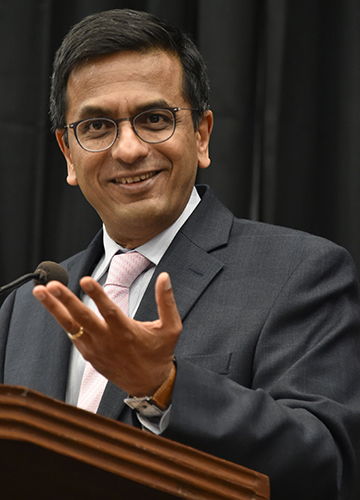The Chief Justice of India delivered the opening speech at the Commonwealth Attorney and Solicitors Generals Conference on Saturday.
On Saturday, Chief Justice of India (CJI) DY Chandrachud emphasized that law officers have a heightened duty to maintain ethical standards, surpassing those of private practitioners.
He highlighted the crucial role of government law officers in ensuring executive accountability, emphasizing their dual function as officers of the court.
“It is crucial for law officers to shield themselves from the prevailing political climate and maintain a dignified demeanor in court to uphold the integrity of legal proceedings,” he remarked.
Additionally, he highlighted the late Soli Sorabjee, a former Attorney General, as an exemplar in this regard, noting his dedication to justice by advising the Union even in instances where a valid legal case was lacking.”
This statement was made during the inaugural address at the 2024 Commonwealth Attorney and Solicitors Generals Conference by the Chief Justice of India.
Prime Minister Narendra Modi, Union Minister of State with independent charge of the Law and Justice Ministry Arjun Ram Meghwal, Attorney General R Venkataramani, and Solicitor General Tushar Mehta were among the dignitaries present at the event.
The conference’s theme this year centered on Cross-Border Challenges in Justice Delivery.
During his address, the CJI discussed a recent ruling he authored aimed at preventing arbitrary summoning of government officials.
“It advises against utilizing the authority to summon officials as a means to exert pressure on the government, stressing that such measures should only be employed in situations vital to the administration of justice. This collaborative approach involving legal officers, government officials, and the judiciary reinforces the ethical foundations of executive accountability while promoting a culture of mutual respect and cooperation within the justice system.”
Furthermore, he emphasized the importance of considering socio-economic backgrounds, diversity, and life experiences in the admission and recruitment processes of law schools.
“As we endeavor to modernize legal education, we must also address the issue of equal access to legal education. Entrance examinations for law school admissions should not be exclusionary. We must ensure that our admission procedures are fair, transparent, and inclusive. This requires a comprehensive approach,” he asserted.
CJI Chandrachud also addressed the significance of technology as a potent instrument in delivering justice, emphasizing the need for its careful utilization to avoid perpetuating inequality.
“Modernizing courtrooms and facilities is equally vital alongside enhancing overall infrastructure. It’s imperative to ensure that technology contributes to enhancing transparency and accountability rather than perpetuating opacity and inequality.”
In conclusion, he expressed his aspirations for a future where justice transcends boundaries, and where the rule of law prevails without compromise.



